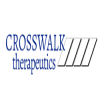Dive Brief:
- A federal judge on Wednesday ruled two patents held by Amgen on its cholesterol drug Repatha are invalid, reversing a February jury verdict that had upheld the California biotech's claims in its legal battle with rivals Sanofi and Regeneron.
- Judge Richard Andrews' decision will not remove Repatha from market, and Amgen said it plans to appeal. Still, it's a setback that strengthens the position of Sanofi and Regeneron, which sell the competing drug Praluent. Both Repatha and Praluent are antibodies that lower cholesterol by binding to a protein called PCSK9.
- Litigation between the companies has dragged on since 2014, the year before both drugs were approved in the U.S. Before Wednesday's ruling, Amgen appeared to have the upper hand in the U.S. and in Germany, where a court decision last month blocked sales of Praluent.
Dive Insight:
Judge Andrews' decision is another twist in a now five-year long legal fight between Amgen and the team of Sanofi and Regeneron.
At issue are Amgen's patents covering antibodies targeting PCSK9, short for proprotein convertase subtilisin/kexin type 9. Both Repatha (evolocumab) and Praluent (alirocumab) block that protein from binding to the LDL receptor, thereby freeing more of those receptors up to absorb LDL cholesterol from the blood.
Amgen sued Sanofi and Regeneron in 2014, arguing Praluent infringed on its intellectual property covering the technology. A jury affirmed those patents in 2016 and Amgen even briefly won an injunction against sales of Praluent before that was stayed.
Sanofi and Regeneron then appealed to the U.S. Court of Appeals for the Federal Circuit, which partially reversed the earlier finding and remanded the case to a new trial.
In February, a jury declared as valid three of five claims made by Amgen through the two patents.
That's now overturned, with Judge Andrews ruling Amgen's claims fall short of a legal standard known as enablement. Essentially, Amgen did not prove a person "skilled in the art" would be able to use the patent without "undue experimentation."
"Even taking the testimony in the light most favorable to plaintiffs, the testimony of plaintiffs' own experts indicates that the experimentation necessary to enable the full scope of the claims would take a substantial amount of time and effort," Judge Andrews wrote in his decision. Amgen is the plaintiff in the case.
Sanofi and Regeneron's request for a new trial, however, was conditionally denied, as was their attempt to invalidate Amgen's patents on grounds of another legal standard known as written description.
"We disagree with the Court's decision in reversing the jury verdict on enablement and will seek review by the appellate court," said Amgen in a statement to BioPharma Dive. "We are disappointed with today's decision, and we look forward to presenting our case to uphold the jury's verdict."
Amid the legal back-and-forth, both Repatha and Praluent have struggled to live up to once lofty sales expectations. The drugs, which can lower LDL cholesterol by as much as 50% to 60% for patients already on statins, were initially priced around $14,000 a year, spurring pushback from insurers.
Both Amgen and Sanofi and Regeneron have since cut their prices to a about $6,000 a year in bids to grow market share. Repatha sales have so far paced ahead of Praluent's.

A new competitor could be on the horizon, too. Just this week, The Medicines Company disclosed a Phase 3 study of its longer-acting PCSK9 inhibtor inclisiran succeeded. Full details are still not known, but the drug's twice-a-year dosing could win over patients and payers on its convenience.
Medicines Co. plans to file inclisiran for U.S. approval by the end of the year.












